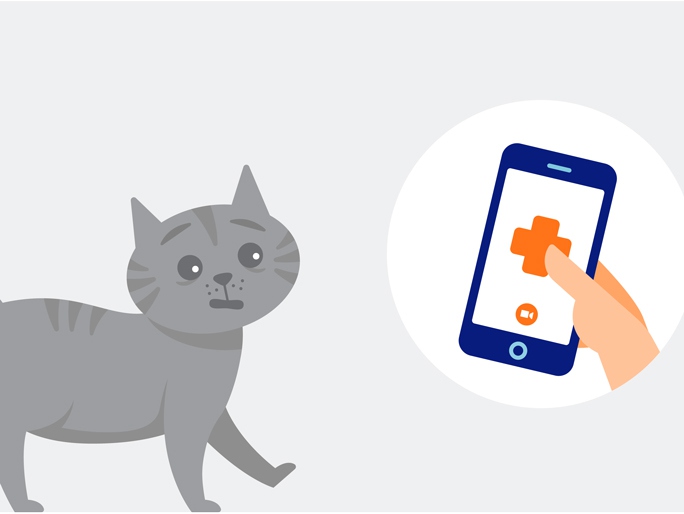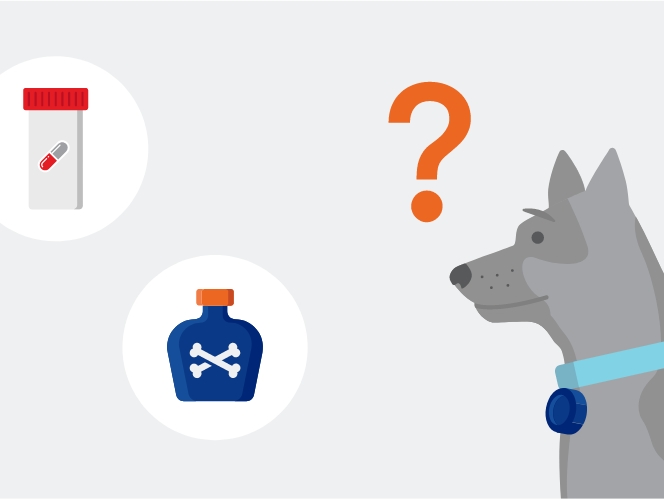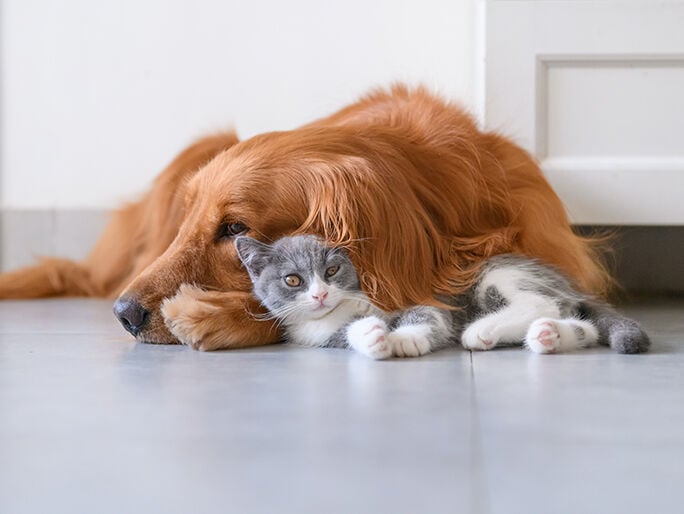cat and dog first aid kits
Having the right supplies on hand can help you immediately care for your pet in case of a medical emergency.
It’s always a good idea to have a first aid kit on hand, whether you and your pet are out on the road, camping, hiking, or just hanging out at home.

Essentials for a pet first aid kit
- Contact information for your vet
- Contact information for your local emergency veterinary hospital
- Clean nonstick bandages, towels, or strips of cloth
- Rolled gauze
- Bandage tape
- Saline solution
- Sterile lubricant
- Styptic powder
- Digital thermometer
- Large towel or blanket
- Leash and harness
- Scissors
- Muzzle
- Bottle of water
What to have on hand for little scrapes and life-threatening emergencies
Having first aid materials immediately on hand can help you focus on safely getting your pet the help they need. If you have an evacuation kit for your pet (and we always recommend you do), it’s a great idea to include these pet first aid supplies in their go bag.
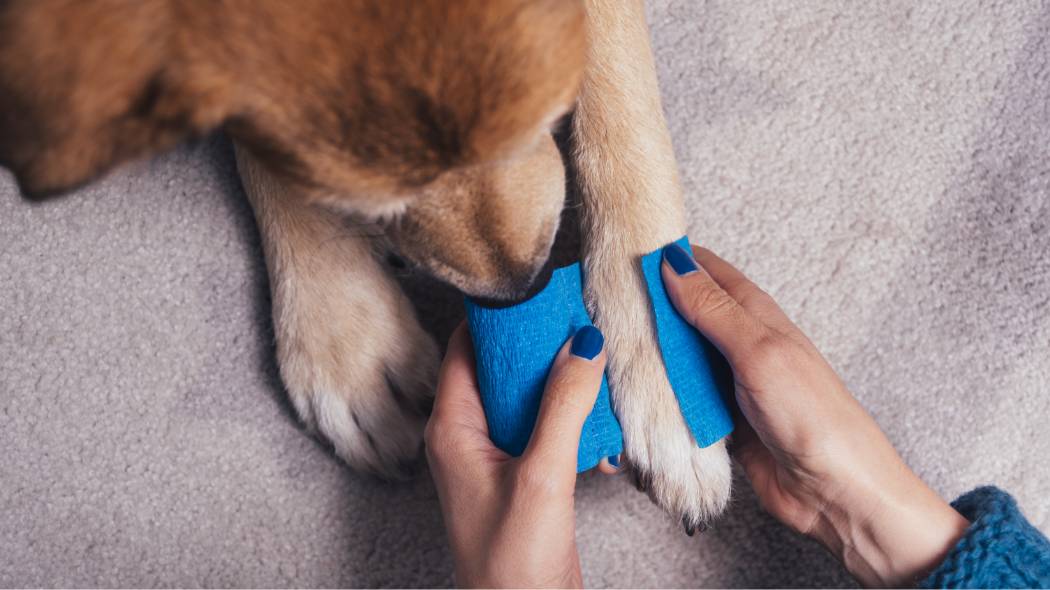
Keep a hard copy of veterinary contact information in your kit
If your dog or cat is hurt or injured, you’ll want to call your vet or an emergency veterinary hospital ASAP. It’s great to have this information on your phone, but a hard copy in your first aid kit can help both you and other people know where to call for aid.
You’ll want to keep numbers and addresses of your local wellness veterinary team or hospital plus the phone and address of your local emergency veterinary hospital or after-hours pet clinic. Emergency veterinary hospitals and after-hours clinics are the ERs of the pet world. In case of emergency, it’s smart to call as you’re on your way to help them prepare and be ready when you arrive.
Avoid adhesive bandages — here’s what to stock instead
The goal of first aid for cats and dogs is to help you get them to more intensive care. That means taking extra steps to keep both you and your pet safe.
Sick, hurt, or frightened animals may strike out even at people they love. For dogs, we recommend using nonadhesive materials like gauze, strips of T-shirt, or even neckties as a muzzle to help prevent bites. For cats, you may need to swaddle or contain them in a blanket or towel to prevent further injury.
You’ll also need specific materials to help you apply pressure and bind up wounds. Make sure you have an extra leash or harness on hand to help keep your pet still. A blanket or a beach towel in your kit can help you carry your pet to a safe area.
Never use human adhesive bandages like Band-Aids® or industrial tape (like duct tape) on pets. These materials can be actively harmful to pet hair and skin.

Basic pet first aid kit supplies
- Nonstick bandages, clean towels, or strips of clean cloth to clean wounds and control bleeding
- Clean rolled gauze for wrapping wounds
- Stretchy athletic bandages or colored vet wraps to place over gauze or stabilize injured legs
- Bandage tape for taping bandages or wraps in place
- Scissors to cut bandages and gauze
- Large towel or blanket to carry your pet or for cleanup
- Extra leash or harness to help keep your pet close
Use caution with hydrogen peroxide and other specialty supplies
In addition to the basics, you may want to include some special supplies. However, you should only use these materials if explicitly directed by your vet.
Using these supplies incorrectly can really hurt the pet you love. Never make your pet vomit or use an epi pen without veterinary guidance.
- Hydrogen peroxide to induce vomiting (only at veterinary direction)
- Digital rectal thermometer (your veterinary team will provide directions)
- Diphenhydramine for some allergic reactions (only at veterinary direction; you’ll need to know the specific dose and how to administer)
Mentioned in this article
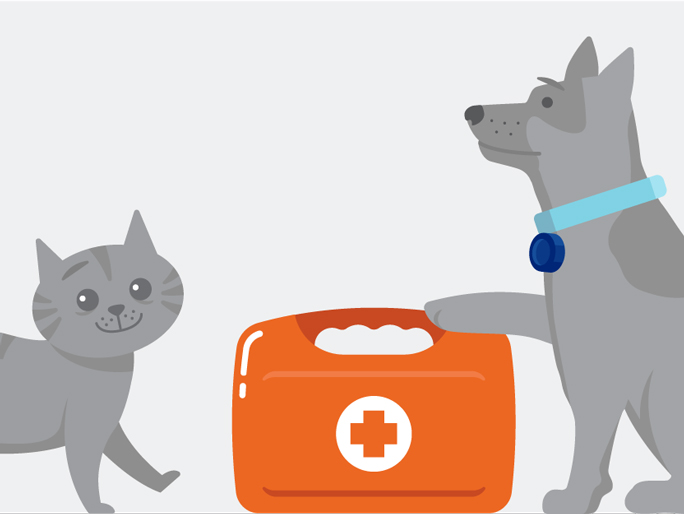
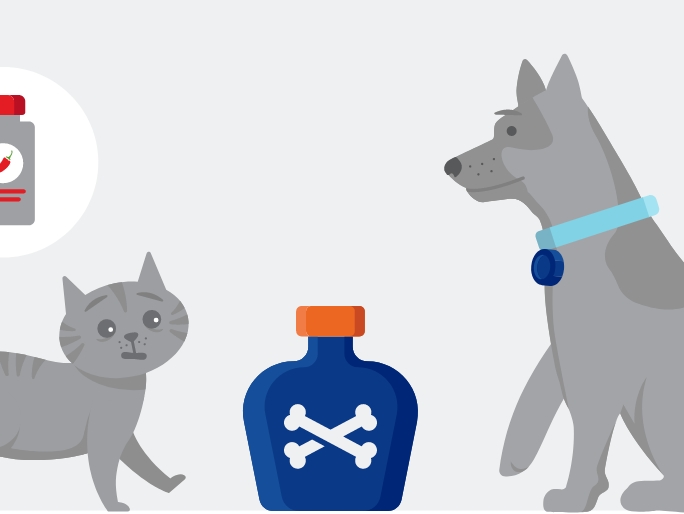
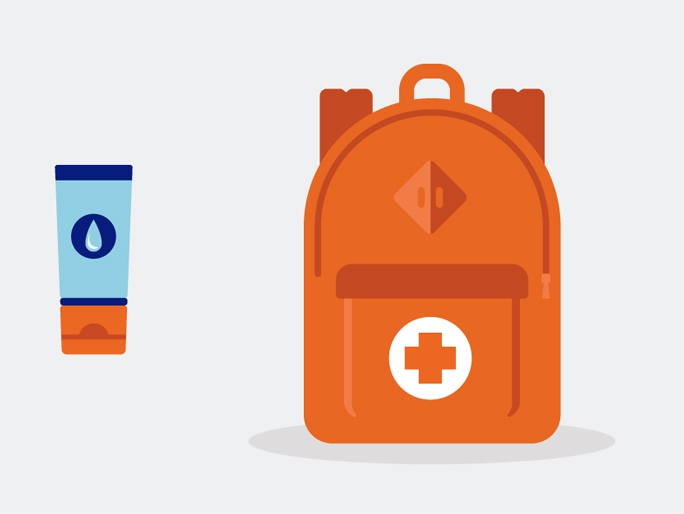

Need advice on flea control? Ping Pet Chat™!
Whether it's 3 a.m. or 3 p.m., connect with a real veterinary professional for immediate petcare advice. It's included in all Optimum Wellness Plans®!
Log in to start chattingHow Banfield can help in a pet emergency
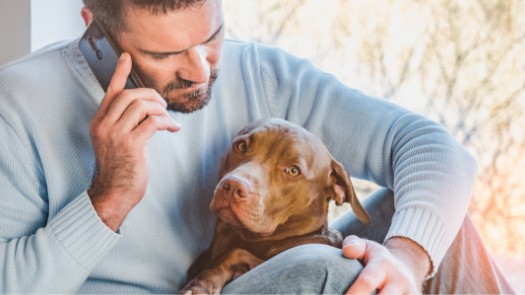
Banfield’s focus is wellness care. In the case of an emergency, call your local veterinary team to see if they have the capacity to see your pet. If not, they may recommend that you go immediately to an emergency hospital.
Costs for urgent care services will depend on location, your pet’s needs, and the services provided. Please speak to your local Banfield veterinary team if you have questions regarding urgent care.
Pet urgent care advice
Call a Banfield near you during hospital hours for advice. Depending on your pet's needs, we can provide a referral for local emergency hospitals or specialty providers. During non-hospital hours, please contact your local veterinary emergency hospital.
Chat with a team member online
All pet Optimum Wellness Plans® come with Pet ChatTM for anytime, anywhere, 24/7 access to live general veterinary advice.
Access pet records in your MyBanfield account
Pet records are available 24/7 in MyBanfield both online and in our app. These include medical records, microchip information, and more. If you lose your records or can't get online, give us a call. A Banfield associate may be able to help you access the information you need.
Want high-quality petcare?
Banfield offers a range of services from comprehensive exams to urgent care advice.
 Mites and mange
Mites and mange Podcast - Not Just Fluff
Podcast - Not Just Fluff

